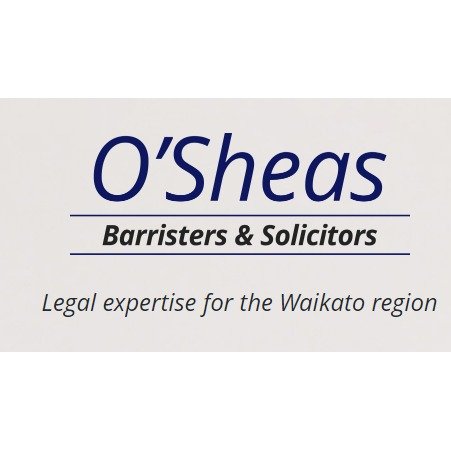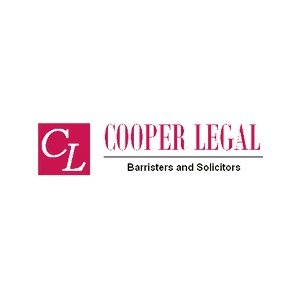Best Civil Rights Lawyers in New Zealand
Share your needs with us, get contacted by law firms.
Free. Takes 2 min.
Or refine your search by selecting a city:
List of the best lawyers in New Zealand
About Civil Rights Law in New Zealand
Civil Rights in New Zealand are protected under a combination of statutes, common law, and international treaties. The country's commitment to human rights is enshrined in documents such as the New Zealand Bill of Rights Act 1990 and the Human Rights Act 1993. These laws ensure individuals are protected against discrimination and their freedoms are protected, fostering a society that values fairness and equality.
Why You May Need a Lawyer
There are several situations where you may need legal advice regarding Civil Rights in New Zealand. These can include instances of discrimination in the workplace, school, or other settings; violations of privacy; freedom of expression concerns; and issues related to freedom of assembly or religion. A lawyer specializing in Civil Rights can help you understand your rights and provide representation in situations where they may have been infringed upon.
Local Laws Overview
Key local laws relevant to Civil Rights in New Zealand include:
- New Zealand Bill of Rights Act 1990: Protects fundamental rights and freedoms such as freedom of expression, assembly, movement, and protection against discrimination.
- Human Rights Act 1993: Prohibits discrimination on various grounds such as race, gender, age, and disability in both private and public settings.
- Privacy Act 2020: Regulates the collection, use, and disclosure of personal information, safeguarding individuals' privacy rights.
Frequently Asked Questions
1. What are my basic civil rights in New Zealand?
Basic civil rights include freedom from discrimination, the right to privacy, freedom of expression, and the right to a fair trial.
2. How can I file a complaint about discrimination?
You can file a complaint with the Human Rights Commission if you believe you have been discriminated against based on grounds outlined in the Human Rights Act 1993.
3. Can my employer discriminate against me based on my gender?
No, the Human Rights Act 1993 prohibits discrimination in employment based on gender, along with other protected characteristics.
4. What should I do if I feel my privacy rights have been violated?
If you believe your privacy rights have been breached, you can lodge a complaint with the Privacy Commissioner for investigation and possible resolution.
5. How do civil rights differ from human rights?
Civil rights are protected within a country's legal system, focusing on ensuring equality and freedom from discrimination, while human rights are universal rights inherent to all individuals.
6. What is considered hate speech in New Zealand?
Hate speech in New Zealand is speech that incites hostility or discrimination against individuals based on particular characteristics such as race, as defined by the Human Rights Act 1993.
7. What legal protections exist for freedom of expression?
The New Zealand Bill of Rights Act 1990 protects freedom of expression, with some limitations to balance other rights and interests like national security and public order.
8. Can I protest or assemble freely in New Zealand?
Yes, freedom of peaceful assembly is protected under the Bill of Rights Act 1990, although it must be balanced with laws regarding public order.
9. What role does the Human Rights Commission play?
The Human Rights Commission investigates complaints of discrimination and promotes an understanding of human rights, working towards ensuring compliance with human rights standards.
10. How are civil rights enforced in New Zealand?
Enforcement can occur through various means, including legal action in courts, ombudsman investigations, and complaints to relevant governmental bodies like the Human Rights Commission.
Additional Resources
Here are some resources and organizations that may be helpful:
- Human Rights Commission: Offers guidance and accepts discrimination complaints.
- Privacy Commissioner: Provides information on privacy rights and handles complaints about breaches.
- Community Law Centres: Offer free legal advice and support across New Zealand.
- Civil Rights in New Zealand: Publications and resources from the Ministry of Justice.
Next Steps
If you require legal assistance in Civil Rights, begin by reaching out to a local lawyer specializing in this area. You can also contact Community Law Centres for free legal support. Should you need to file a formal complaint regarding a civil rights violation, consider contacting the Human Rights Commission or the Privacy Commissioner depending on the nature of the issue. It is crucial to document all relevant information and communications related to your concern for any potential legal proceedings.
Lawzana helps you find the best lawyers and law firms in New Zealand through a curated and pre-screened list of qualified legal professionals. Our platform offers rankings and detailed profiles of attorneys and law firms, allowing you to compare based on practice areas, including Civil Rights, experience, and client feedback.
Each profile includes a description of the firm's areas of practice, client reviews, team members and partners, year of establishment, spoken languages, office locations, contact information, social media presence, and any published articles or resources. Most firms on our platform speak English and are experienced in both local and international legal matters.
Get a quote from top-rated law firms in New Zealand — quickly, securely, and without unnecessary hassle.
Disclaimer:
The information provided on this page is for general informational purposes only and does not constitute legal advice. While we strive to ensure the accuracy and relevance of the content, legal information may change over time, and interpretations of the law can vary. You should always consult with a qualified legal professional for advice specific to your situation.
We disclaim all liability for actions taken or not taken based on the content of this page. If you believe any information is incorrect or outdated, please contact us, and we will review and update it where appropriate.
Browse civil rights law firms by city in New Zealand
Refine your search by selecting a city.












